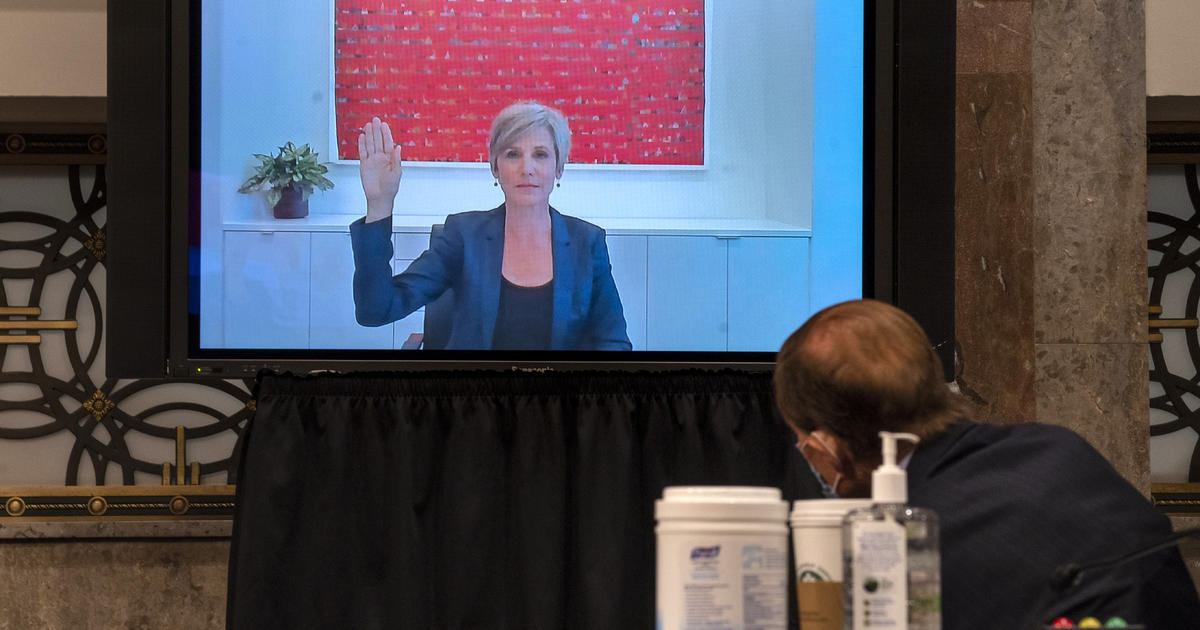Washington — Former Deputy Attorney General Sally Yates, who served in the upper ranks of the Justice Department during the FBI’s investigation into Russian meddling in the 2016 election, told lawmakers Wednesday that former FBI Director James Comey went rogue when he “unilaterally” dispatched agents to interview former national security adviser Michael Flynn at the White House in the early days of the Trump administration.
In an exchange with Senate Judiciary Committee Chairman Lindsey Graham during a hearing on the FBI’s “Crossfire Hurricane” investigation, Yates was asked whether she authorized the FBI’s January 24, 2017, interview of Flynn.
“I didn’t authorize that interview because I wasn’t told about it in advance,” Yates, who appeared remotely, told lawmakers.
Yates said that when she heard about the FBI’s interview with Flynn, “I was upset that Director Comey didn’t coordinate this with us and acted unilaterally.” Graham, a Republican from South Carolina, asked whether Comey went “rogue” with sending agents to speak with Flynn, and Yates responded, “You could use that term, yes.”
But Yates defended the FBI’s basis for conducting its interview with Flynn, who was under scrutiny for conversations he had with then-Russian ambassador to the U.S. Sergey Kislyak after the November 2016 election. Flynn was ultimately fired from his post as national security adviser in February 2017 for lying to Vice President Mike Pence about his contacts with Kislyak.
“Interviewing General Flynn was really right at the core of the FBI’s investigation at this point to try to discern, what are the ties between the Trump administration and the Russians?” she said, adding that there was a “risk” Flynn would be compromised.
Yates instead favored bringing the information about Flynn’s contacts with Kislyak directly to the White House.
“The conversations themselves were concerning and that was a proper basis to be part of the counterintelligence investigation but you have to balance the investigation also with the need to address the compromise threat that presented itself most urgently,” she said. “In doing that balancing, I thought that we needed to go tell the White House right away so that they could act.”
The Republican-controlled Senate Judiciary Committee has been investigating the FBI’s handling of the investigation into Russian interference and ties between the Trump campaign and Russia. There are also two separate probes, one of which is ongoing, into the origins of the bureau’s investigation, which was ultimately taken over by special counsel Robert Mueller in 2018.
One of the examinations that was conducted by Justice Department Inspector General Michael Horowitz found that there were 17 “significant inaccuracies and omissions in” the four applications submitted by the FBI to surveil Carter Page, a Trump campaign aide.
Yates told the Senate Judiciary Committee that had she known the warrant applications submitted to the secretive Foreign Intelligence Surveillance Court contained inaccurate information, “I certainly wouldn’t have signed it.”
“I believe that the Department of Justice and the FBI have a duty of candor with the FISA court that was not met,” she said.
President Trump criticized Yates ahead of her appearance Thursday, claiming in a tweet she has “zero credibility.” Mr. Trump fired Yates, who also served as acting attorney general, in January 2017 after she directed Justice Department attorneys to stop defending the president’s first travel ban.
